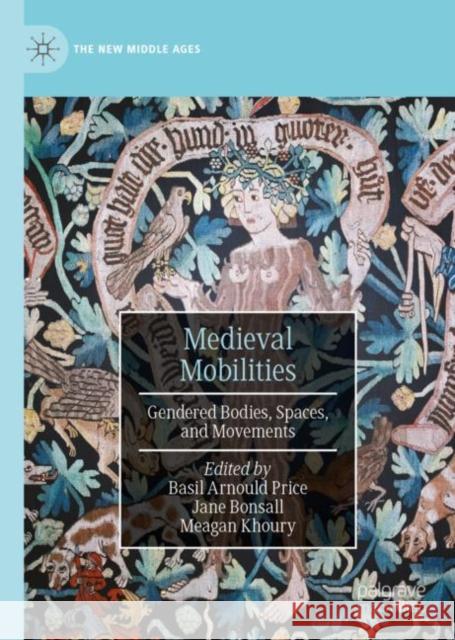Medieval Mobilities: Gendered Bodies, Spaces, and Movements » książka
Medieval Mobilities: Gendered Bodies, Spaces, and Movements
ISBN-13: 9783031126468 / Angielski / Twarda / 2023 / 256 str.
Medieval Mobilities: Gendered Bodies, Spaces, and Movements
ISBN-13: 9783031126468 / Angielski / Twarda / 2023 / 256 str.
(netto: 536,72 VAT: 5%)
Najniższa cena z 30 dni: 501,19
ok. 16-18 dni roboczych.
Darmowa dostawa!
This collection explores the intersection of gender and mobility across the Global Middle Ages.MedievalMobilitiesquestions how medieval people, texts, images, and ideas move across physiological, geographical, literary, and spiritual boundaries. In what ways do these movements afford new configurations of gender, sexuality, and being? Enacting a dialogue between medieval studies, feminist thought, and queer theory,Medieval Mobilitiesproposes that attending to the undulations of premodern gender and sexuality may help destabilize unstated assumptions about ways of being and loving in the Middle Ages. This volume also brings together emergent and established scholars to challenge an increasingly static academy and instead envision a scholarly practice focused on intergenerational, international, and interdisciplinary collaboration. Drawing upon wide range of primary sources and theoretical frameworks, the resultant essays unsettle the imagined fixity of gender and propose alternative conceptualizations of embodiment, identity, and difference in the medieval world.
This collection explores the intersection of gender and mobility across the Global Middle Ages. Medieval Mobilities questions how medieval people, texts, images, and ideas move across physiological, geographical, literary, and spiritual boundaries. In what ways do these movements afford new configurations of gender, sexuality, and being? Enacting a dialogue between medieval studies, feminist thought, and queer theory, Medieval Mobilities proposes that attending to the undulations of premodern gender and sexuality may help destabilize unstated assumptions about ways of being and loving in the Middle Ages. This volume also brings together emergent and established scholars to challenge an increasingly static academy and instead envision a scholarly practice focused on intergenerational, international, and interdisciplinary collaboration. Drawing upon wide range of primary sources and theoretical frameworks, the resultant essays unsettle the imagined fixity of gender and propose alternative conceptualizations of embodiment, identity, and difference in the medieval world.











